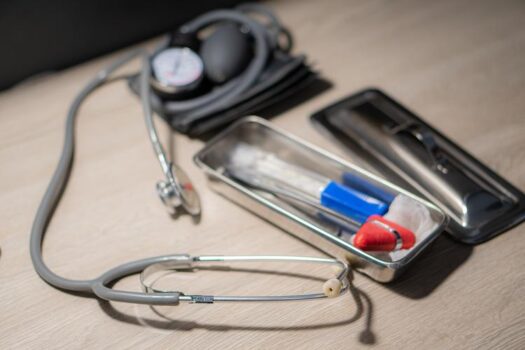
The New Jersey Supreme Court recently heard oral arguments in Wiggins v. Hackensack Meridian Health, which involves whether plaintiffs must serve an affidavit of merit (AOM) from a physician board certified in each of defendant doctor’s specialties. The Appellate Division previously held that the New Jersey Medical Care Access and Responsibility and Patients First Act (Act) requires plaintiffs to serve an AOM from a physician board certified in both specialties if defendant physician is board certified in two specialties, and the treatment claimed to be negligent involves both specialties.
Facts of the Case
Under N.J.S.A. 2A:53A-26 to -29 (the AOM statute), a plaintiff in a medical malpractice action must “provide each defendant with an affidavit of an appropriate licensed person that there exists a reasonable probability that the care, skill or knowledge exercised or exhibited in the treatment, practice or work that is the subject of the complaint, fell outside acceptable professional or occupational standards or treatment practices.”
In Wiggins, April Carden was treated for a blood clot at defendant Hackensack Meridien Health d/b/a JFK University Medical Center (JFK) in August 2020. She was discharged on September 3, 2020. Defendant Alok Goyal, M.D., prescribed allopurinol which Carden took from September 4 to 8. On September 9, Carden was admitted to JFK and treated for Stevens-Johnson Syndrome. She died on September 29, 2020, from cardiopulmonary arrest attributed to “multiple organ failure, bacteremia, and Stevens[-]Johnson Syndrome.” Plaintiffs allege Carden’s death was attributed to the usage of allopurinol.
Plaintiffs, as administratrices of Carden’s estate, filed a complaint against the defendants alleging Dr. Goyal breached the applicable standard of care and was negligent in his treatment of Carden, causing her injuries and death. The complaint cited Goyal’s certification in both internal medicine and gastroenterology.
The plaintiffs served an AOM by Stella Jones Fitzgibbons, M.D., FACP, FHM, licensed in Texas,
who was board-certified in internal medicine and practiced clinical internal medicine. The defense objected to the AOM on the basis that it did not cover Goyal’s second specialty, gastroenterology. In response, the plaintiffs argued that one AOM is enough, relying largely on Buck v. Henry, 207 N.J. 377 (2011). “A physician may practice in more than one specialty, and the treatment involved may fall within that physician’s multiple specialty areas,” the Court wrote in Buck. “In that case, an [AOM] from a physician specializing in either area will suffice.”
Appellate Division’s Decision
The trial court agreed that an AOM from a physician specializing in just one of a defendant doctor’s two specialties is sufficient. However, the Appellate Division reversed. It held concluded that plaintiffs must serve an AOM from a physician board certified in each of defendant doctor’s specialties.
“Because the facts presented here are distinguishable from Buck and the discrete ruling in Buck was not specific to this issue, and in considering the purpose of the Act, we conclude plaintiffs must serve an AOM from a physician board certified in each of defendant doctor’s specialties,” the appeals court explained. “We are guided by the kind-for-kind, credential equivalency requirement articulated in N.J.S.A. 2A:53A-41(a) and the legislative purpose of the Act.”
Issues Before the NJ Supreme Court
The New Jersey Supreme Court granted certification on July 18, 2024. The justices agreed to consider the following question: “In this medical malpractice matter in which the treating doctor was board certified in internal medicine and gastroenterology, was plaintiffs’ affidavit of merit from a doctor board certified in internal medicine sufficient?” Oral arguments were held on November 4, 2024.
